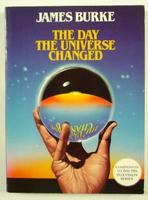
Matter of Fact: Printing transforms knowledge. (1985)
1. What does Burke mean when he says that before 1450 the world that people experienced was primarily oral and local? How did people get most of their information about the world?
2. If we were not literate as a people, how would it affect our perception of the world?
3. How can rhymes and proverbs help the storage of knowledge? Has literacy ruined our memories?
4. Why did monks have such mystical ideas about writing? If writing was so sacred to them, why were they so unconcerned with cataloguing their books?
5. What were “indulgences” and what effect did paper have on the sale of them?
6. What argument could you make that the printing press was the cause of the Protestant Reformation?
7. How did printing contribute to the creation of bureaucracies? Discuss how printing contributed to the centralization of control by Church and State.
8. What does it mean to say that knowledge and information became commodities? Discuss how printing was instrumental in making possible the first publicity.
9. How did the printing press lead to greater interest in observation? To criticism of authority? To standardization of the collection and ordering of knowledge? How did it alter our view of what the facts are? Offer ways in which the printing press was a significant factor in the emergence of modern science.